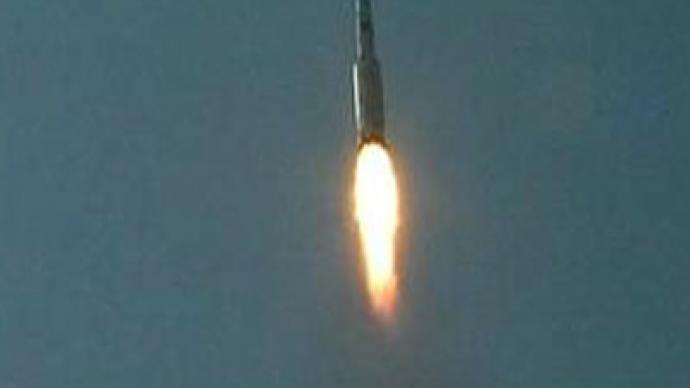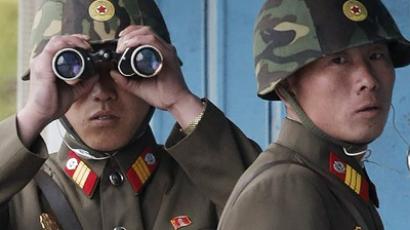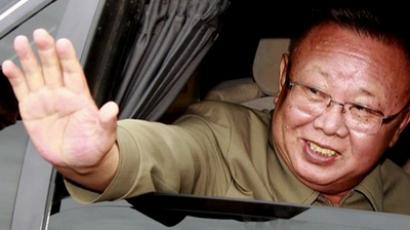KIMmortal: Death not the end as N. Korea tests missile

North Korea has reportedly conducted at least one short-range missile test amid worldwide concerns that the death of Kim Jong-il could destabilize the most militarized region in the world.
South Korea's Yonhap news agency said Monday’s test came as North Korean state media announced the country’s longstanding leader had died of a heart attack while traveling by train. South Korean military officials were unable to immediately confirm the report, saying it would be a breach of policy to comment on intelligence matters. However, government officials, speaking under condition of anonymity, told Yonhap the test had taken place off the country’s east coast, on the Sea of Japan. A source from Russia’ Foreign Ministry also told Interfax news agency they were unable to confirm whether or not North Korea had launched a short-ranged ballistic missile. However, despite international concerns, the launch is unlikely to be connected with news of Kim Jong-il’s death, as South Korean authorities reported it was carried out prior to the official announcement concerning Kim’s passing, Interfax reports. But James Corbett, editor of Japan-based news website Corbett Report, thinks the reported missile tests were a demonstration of power for the neighbors and the world. “The new regime in North Korea is looking to assert its power and to show that it obviously still exists at the world stage and that this is not going to destabilize the country.”Meanwhile, as North Korean state media has hailed Kim Jong-il’s youngest son Kim Jung-un as the "great successor," the world community is increasingly alarmed over the impact of instability in a state which has actively pursued nuclear weapons. The Untied States expressed its ongoing commitment to stability on the Korean peninsula amid the news of Kim senior’s deathSpeaking with South Korean President Lee Myung-bak by phone, President Barack Obama said he would closely monitor developments.Japan held a special security meaning “to deal with the unexpected.”Meanwhile, South Korea put its military on high alert as the country has technically remained at war with the north since the 1953 Armistice agreement halted major hostilities.With a 1.2 million-strong standing force, North Korea currently has the world’s fourth-largest army.
Nuclear Ambitions
The Democratic People’s Republic of Korea (DPRK), or North Korea first began developing its nuclear capability with the help of the Soviet Union in 1965. By 1989, it was discovered that a secret facility had been built at Yongbyon which was capable of separating plutonium from nuclear fuel.After the 90s would see North Korea abstain from enriching uranium for almost a decade, a souring of relations with the US during the Bush years led Pyongyang to detonate its first nuclear device in 2006. A second nuclear weapons test was later conducted in 2009. It is currently estimated that North Korea has enough plutonium to make six bombs, though they are not yet believed to have the ballistic missile capability which would allow the country to deliver a nuclear warhead. RT talked to Rudiger Frank, professor of East Asian Economy and Society at the University of Vienna, who thinks there are three possible scenarios of how North Korea will continue its nuclear program now that Kim Jong-il is gone. The scenarios he offers depend on who will take power in the country."If Kim Jong-un takes over… North Korea will continue to play the nuclear card as a bargaining chip in negotiations. If a collective leadership along the Chinese example will be installed there are chances of actually North Korea giving up its nuclear program, because it does not need it anymore."Professor Frank also says there is a possibility of a chaos scenario with no particular leadership in the country. In this case “we might even have to fear that these weapons are used in this way or the other."














